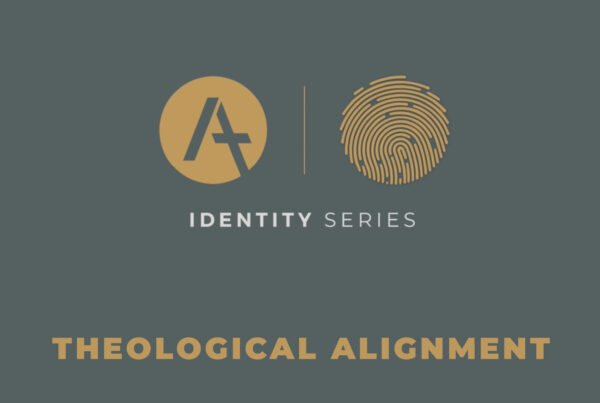Many times when we read our Bibles, we jump to application. That’s not always a bad thing since we want to be “doers of the word and not hearers only” (James 1:22). However, there are inherent dangers in jumping too quickly to application.
We can subtly approach the Bible as a collection of moral lessons and examples of faithful people for us to follow. The Bible is seen as first and foremost about me and what I need to do, as opposed to seeing it primarily as a revelation of God—beholding him in the person of Jesus.
To avoid these dangers, it’s helpful to ask ourselves three questions when studying the Scriptures:
1. Why Are You Reading?
“Keep your heart with all vigilance, for from it flow the springs of life” (Prov. 4:23). God is not only concerned with what we do but why we do it. Our heart motivation should be worship and love for God. Without a heart centred on Jesus as our first love, everything will be off-kilter. Our daily fight of faith is a battle to truly love and treasure God through believing the gospel of Jesus.
Knowing God’s good news and finding our identity in Jesus has breathtaking implications for how we live. Our gospel identity—that in Jesus we are forgiven, accepted, and loved—should continually strengthen our hearts.
Our daily fight of faith is a battle to truly love and treasure God through believing the gospel of Jesus. Condividi il TweetLoving God doesn’t happen through self-effort. It comes from believing the gospel. We love because he first loved us (1 John 4:19). That truth awakens our hearts to the grace, wonder, beauty, goodness, joy, and love of God. Out of this flows love for others and is a gracious work of the Spirit.
2. Who Are You Reading About?
Jesus taught us why, and how, to approach the Bible. In John’s Gospel, we learn there is a wrong way and a right way to read the Bible. “You search the Scriptures because you think that in them you have eternal life, and it is they that bear witness about me, yet you refuse to come to me that you may have life” (John 5:39–40).
It‘s important to understand the Bible is written for us but not primarily about us—it’s about Jesus. To that end, the Bible is a window to behold his beauty. If you approach Scripture focused on you and what you must do, there’s a tendency to slide into a contractual relationship with God. We start to relate to God as a divine employer whom we need to serve. Intimacy is lost.
When we see that the Bible primarily bears witness about Jesus, we’re drawn away from our self-focus to behold the wonder and beauty of God in the face of his Son. We begin to experience the freedom of self-forgetfulness.
3. What Happens When You Read It?
“And we all, with unveiled faces, beholding the glory of the Lord, are being transformed into the same image from one degree of glory to another. For this comes from the Lord who is the Spirit” (2 Cor. 3:18). The Spirit opens our eyes and hearts to the wonder of God’s redemptive story, revealing who God is and what he has done for us in Jesus. This moves us to know, love, and treasure Jesus more. It is the transformation promised to us as we “behold the glory of the Lord.”
When we see that the Bible primarily bears witness about Jesus, we’re drawn away from our self-focus to behold the wonder and beauty of God in the face of his Son. Condividi il TweetWe don’t just want to read the Bible as a book about Jesus, we also want to make sure we do not stop short of coming to him for life. This is not just a one-time, initial coming to faith response. It’s an ongoing need. We meet and commune with the living Word, Jesus, in and through the revelation of this book.
My heart needs an ongoing reminder of the good news or else I can slip into religious duty. This way of relating to God leads to pride and self-righteousness if I think I’m doing well, or despair if I think I’m not living up to God’s standards. But the gospel of God’s grace and full acceptance in Jesus leads to a different end. The gospel of Jesus humbles me, as I am so undeserving, and the cost Jesus paid was so immense. At the same time, it gives me great confidence because I am loved by Jesus who has done it all. Jesus earned God’s favour for me, taking my curse upon himself. How incredible is that?
As you pick up your Bible to read this week, may you recognize it as an invitation to know, in an ever-increasing measure, the God of love and grace in whom is joy and life that knows no end. May we come to the Bible hungering and thirsting to know God more and more. This will not only move us to fully trust him, but also be better equipped to live in light of the gospel each day, for God’s glory, our joy, and so we might share this good news with others.










